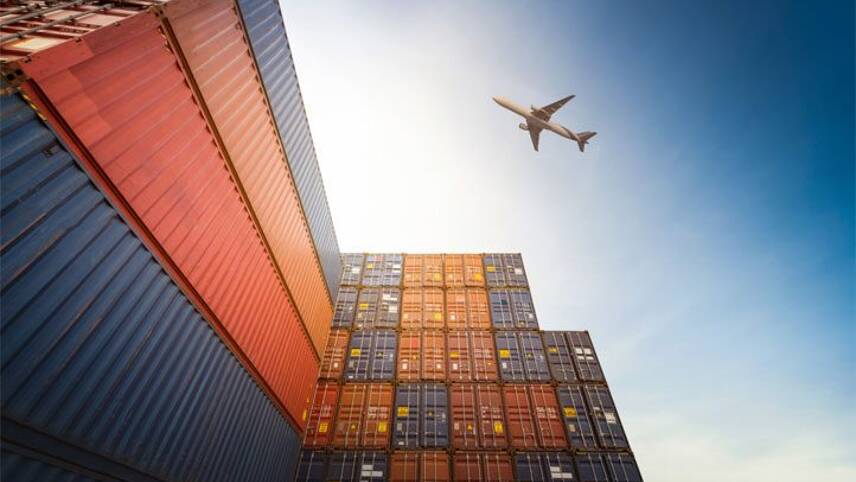Register for free and continue reading
Join our growing army of changemakers and get unlimited access to our premium content

British Ministers claim that the deal will yield an additional £1.8bn in income for the UK over the next decade.
The call to action has come in the form of a new report today (21 July) from the Board of Trade – an advisory body to the Department for International Trade. Members of the Board of Trade, aside from Truss, include former Australian Prime Minister Tony Abbott, former Labour health secretary Patricia Hewitt and Lord Mayor of the City of London William Russell.
The 52-page document cautions Ministers against “green protectionism” – measures that would make it harder for the UK to export and import low-carbon technologies. It calls for the UK to encourage other countries to cut tariffs on technologies for sectors such as renewable energy, energy efficiency and electric vehicles (EVs). At the same time, the UK should not implement a carbon border adjustment tax, the report argues.
Chancellor Rishi Sunak and his team are exploring such a tax but opinion within the Government is said to be mixed. The mechanism would tax imports from countries that are not reducing their emissions, regardless of whether they are made by – or will be used by – high emitters or firms leading the low-carbon transition. Proponents argue that such a mechanism could motivate nations such as China to accelerate decarbonisation, while stopping wealthy countries such as the UK from outsourcing their emissions. Opponents argue that they could cause international tensions ahead of COP26.
Truss said: “Free enterprise is key to the UK’s recovery from the coronavirus pandemic, to tackling climate change, and to securing a stronger and freer trading environment that directly supports jobs in regions and nations across the UK.”
But green groups have broadly disagreed with the premise of the report.
Greenpeace UK’s policy director Doug Parr said: “Currently, half of the UK’s total carbon emissions are imported so it’s misleading to suggest that just harnessing a free market will help tackle the climate crisis.
“We’re all for green trade but only if it comes with restrictions on trade in fossil fuels and the rights polluting companies have to protect their interests and profits.
“Liz Truss’ cavalier approach trade seems unlikely to do that, so this report is heading for being little more than greenwash.”
Shadow Trade Secretary Emily Thornberry added: “Liz Truss and her Board are sticking their heads in the sand on this vital issue, and trying to shut down debate on proposed solutions like a carbon border tax without any proper discussion, let alone any serious alternatives of their own.”
Spotlight on agriculture
The report chiefly focuses on tech-based low-carbon solutions, including those that will be needed to meet the Ten-Point Plan’s ambitions in sectors such as offshore wind. However, mention is given to how agricultural products from abroad are often produced using higher-carbon methods than in the UK.
Agriculture in international trade has been a hot topic in the environmental space recently, following the UK-Australia Trade deal.
With this in mind, the Board of Trade report details the comparative emissions footprint of beef and lamb from different countries. It also provides a headline view of how climate change could disrupt trade patterns in food and agriculture, with some regions set to see a major decrease in crop yields, outlining how agri-tech imports and exports could form part of the solution.
But green groups including WWF have stated that more information on the total environmental footprint of agriculture, encompassing biodiversity loss as well as emissions, is needed – and that core environmental standards for all trade deals are necessary both to the net-zero transition and to the UK economy.
WWF’s executive director of advocacy and campaigns Katie White said: “The Department of Trade’s work to promote environmental technologies shows that it understands trade has a major role in the transition to a green economy, but a blind spot remains around food and farming, and the damage outdated, industrial practices are doing to our planet.
“Instead of aligning with laggards on climate and nature like Australia, the UK should seize the chance to use its independent trade policy to drive a global transition to modern, sustainable farming – supporting farmers at home and overseas who are working hard to achieve this.
“The UK Government must act now to put core environmental standards in place for all food sold in the UK, as recommended by the Trade and Agriculture Commission and the National Food Strategy.”
Published last week, the National Food Strategy is the first comprehensive review of the impacts of the UK’s food system on human health, the environment and the economy for more than 75 years. It is authored by Henry Dimbleby, co-founder of restaurant chain Leon and the Sustainable Restaurant Association. Recommendations will not be translated into policies before this autumn at the earliest, as Parliament is rising for the summer recess on Thursday (22 July).
Sarah George


Please login or Register to leave a comment.